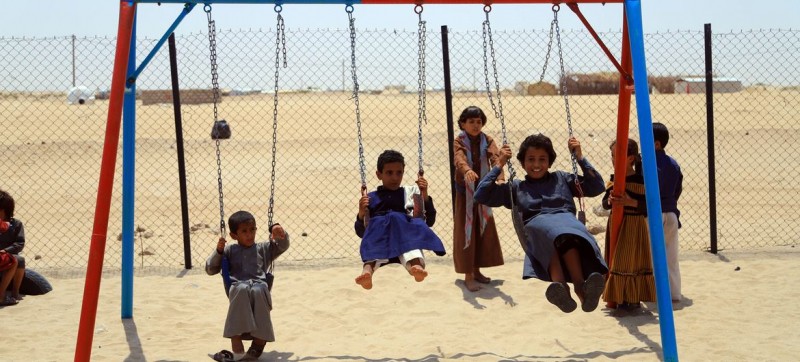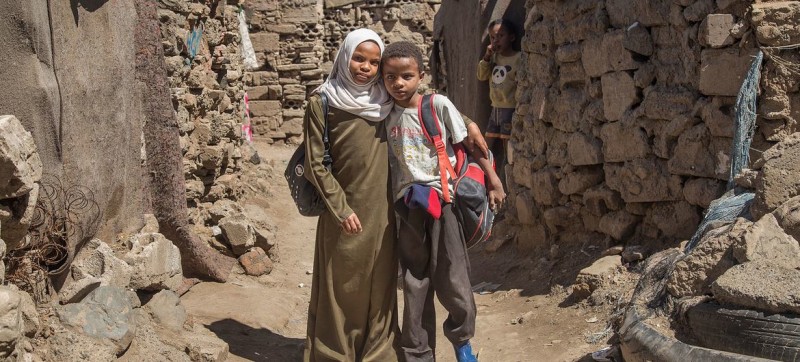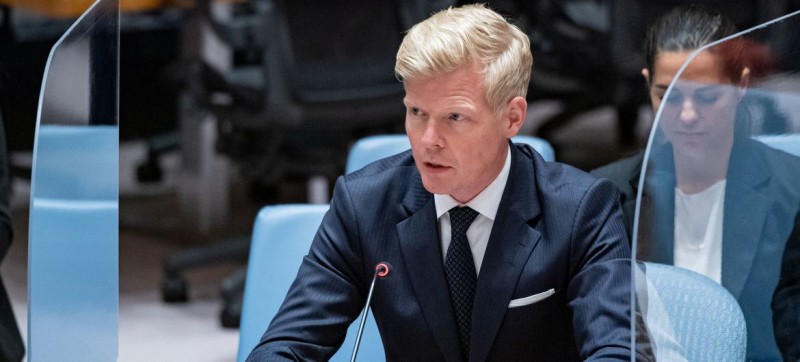Throughout seven years of the Yemeni conflict, displaced children in Marib have experienced unimaginable suffering. The Security Council has a joint responsibility to help Yemen take the “necessary and decisive steps towards peace,” the country’s UN Special Envoy told the ambassadors on Monday. While continuing to count on international support to implement, extend, and expand the current truce, Hans Grundberg underscored the “need to end the conflict, not merely manage it”. The UN envoy lauded the parties for extending the truce until 2 October, continuing “the longest pause in fighting since the war began” over seven years ago.
‘Build a lasting peace’
UN Envoy for #Yemen briefed the #UNSC today on the current status of the extended #truce in Yemen, as well as the proposed elements of an expanded one, outlining the tangible impact of truce implementation on Yemeni men & women. Read his full statement: https://t.co/1KndHvmpaI
— @OSE_Yemen (@OSE_Yemen) August 15, 2022
In addition to humanitarian and economic measures, the agreement provides two months for negotiations to improve Yemeni lives and find further steps to end the conflict.
“We all need to remind ourselves that failure to reach an agreement to extend the truce would lead to renewed cycles of escalation and violence, with predictable and devastating consequences for Yemen’s population,” he said, calling on the parties to “build a lasting peace”.
The first UN-brokered truce came into effect on 2 April and has been extended on a bi-monthly ever since.
Truce holds, militarily
In terms of implementing the current truce, Mr. Grundberg noted that four-and-a-half months in, it “continues to broadly hold in military terms”.
Neither major military operations nor confirmed airstrikes inside the country have occurred, nor have there been cross-border attacks emanating from Yemen.
And while there is “a significant decline” in civilian casualties, he flagged a “worrying development” that child casualties were surging and now constitute about 40 per cent of reported civilian casualties.
He elaborated on one “particularly horrific incident” on 23 July, when mortar fire in Taiz on the residential Zaid al-Mushki district killed one child and injured 10 others, condemning “all such acts of violence”.
Managing incidents
Noting that the truce lacks an independent monitoring mechanism, he encouraged the parties to use its channels, such as the Military Coordination Committee (MCC), to manage these incidents.
He updated that the MCC is expected to meet in Amman at the end of the month and that the parties would also be establishing a Joint Coordination Room to support the MCC through operational de-escalation.

A twelve-year-old Yemeni girl and her younger brother who she tutors in mathematics.
Tangible elements
The Special Envoy outlined key components of the truce, including the opening of Sana’a International Airport to commercial flights and the flow of fuel imports to Hudaydah port.
He reiterated “the pivotal role played by the UN Verification and Inspection Mechanism (UNVIM)” in facilitating fuel imports, while warning that funding shortages could result in its closure.
Mr. Grundberg said that the parties continue to “emphasize the need to build on the existing truce” to include more economic and security priorities and durable solutions for political issues.
Expanded agreement
The senior UN official proposed that an expanded truce should include a transparent disbursement mechanism to regularly pay civil servant salaries and civilian pensions, road openings in Taiz and other governates, regular flow of fuel to Hadiyah ports and a “durable ceasefire to prepare for the resumption of a Yemeni-led political process under UN auspices”.
He reminded that the latest extension allows the parties to work toward an expanded truce agreement, for which he is “intensifying” his efforts to support them in resolving outstanding issues.
“Given the complexity of the issues being addressed and the time constraints we face, I call on the parties to demonstrate flexibility and to respond positively if I ask them to convene to reach agreement,” concluded the Special Representative.

Hans Grundberg, Special Envoy of the Secretary-General for Yemen (file photo)..
Important actions needed
Ghada Mudawi, a senior official in the UN humanitarian office OCHA, updated the Council on the actions needed to strengthen Yemen’s economy, support UNVIM and bolster funding.
On the economy, she highlighted that a worsening exchange rate is prohibiting people from affording food, nearly all of which must be imported.
“Commercial imports are an essential lifeline,” she reminded while noting that they fell in July for “the fourth month in a row”.
Turning to UNVIM, she informed the ambassadors that while $3.5 million was needed for the UN team to support Yemen’s private sector importing until December, the mechanism would lapse if funding was not provided.
Presenting her final point, on humanitarians’ operational environment, she upheld that “aid work remains more difficult and dangerous than it should,” noting the equivalent of about six incidents each day, mostly due to movement.
She pointed to detained and missing UN staff members, stressing that all aid workers “should be released right now”.
Click here to watch the meeting in its entirety.

